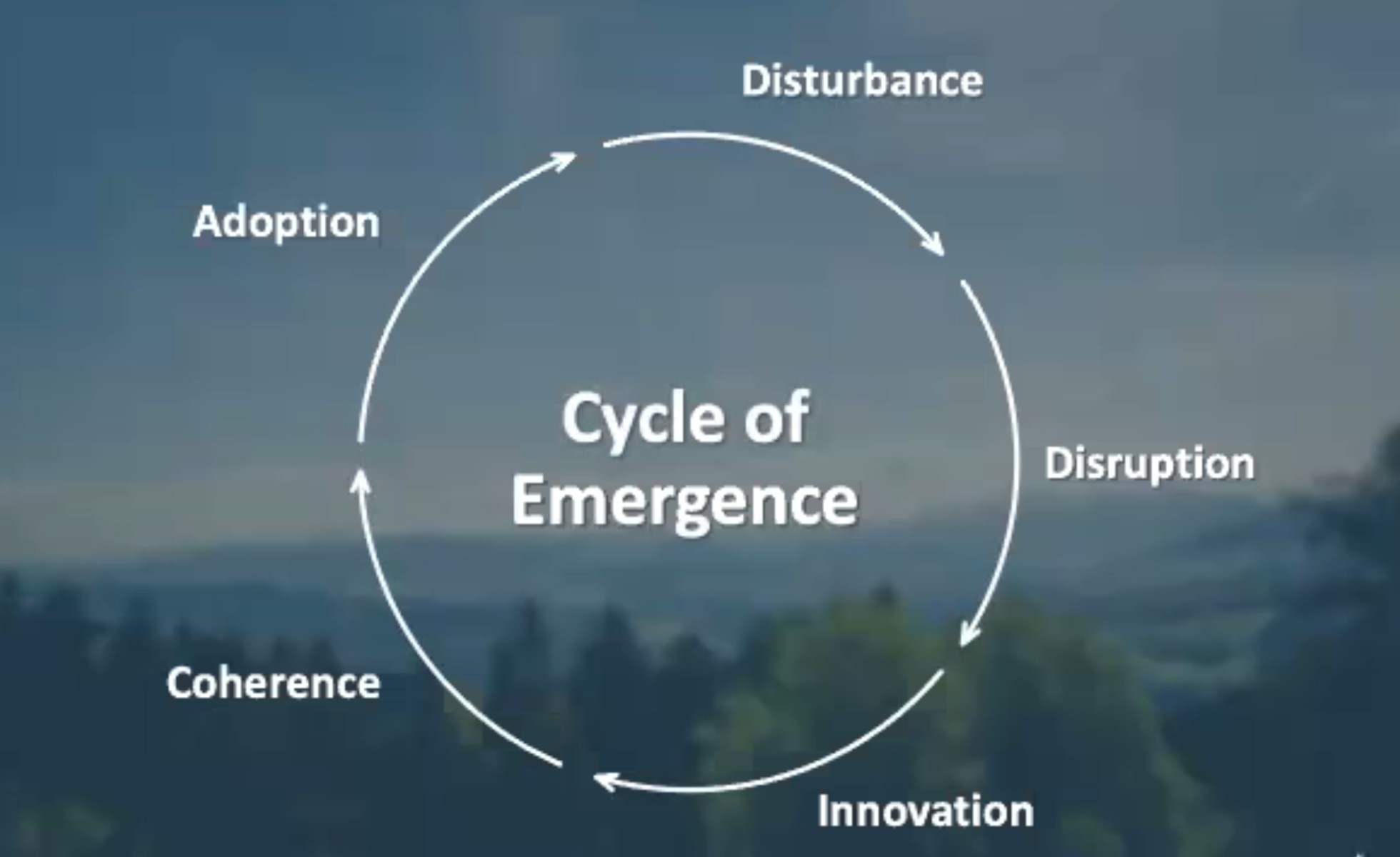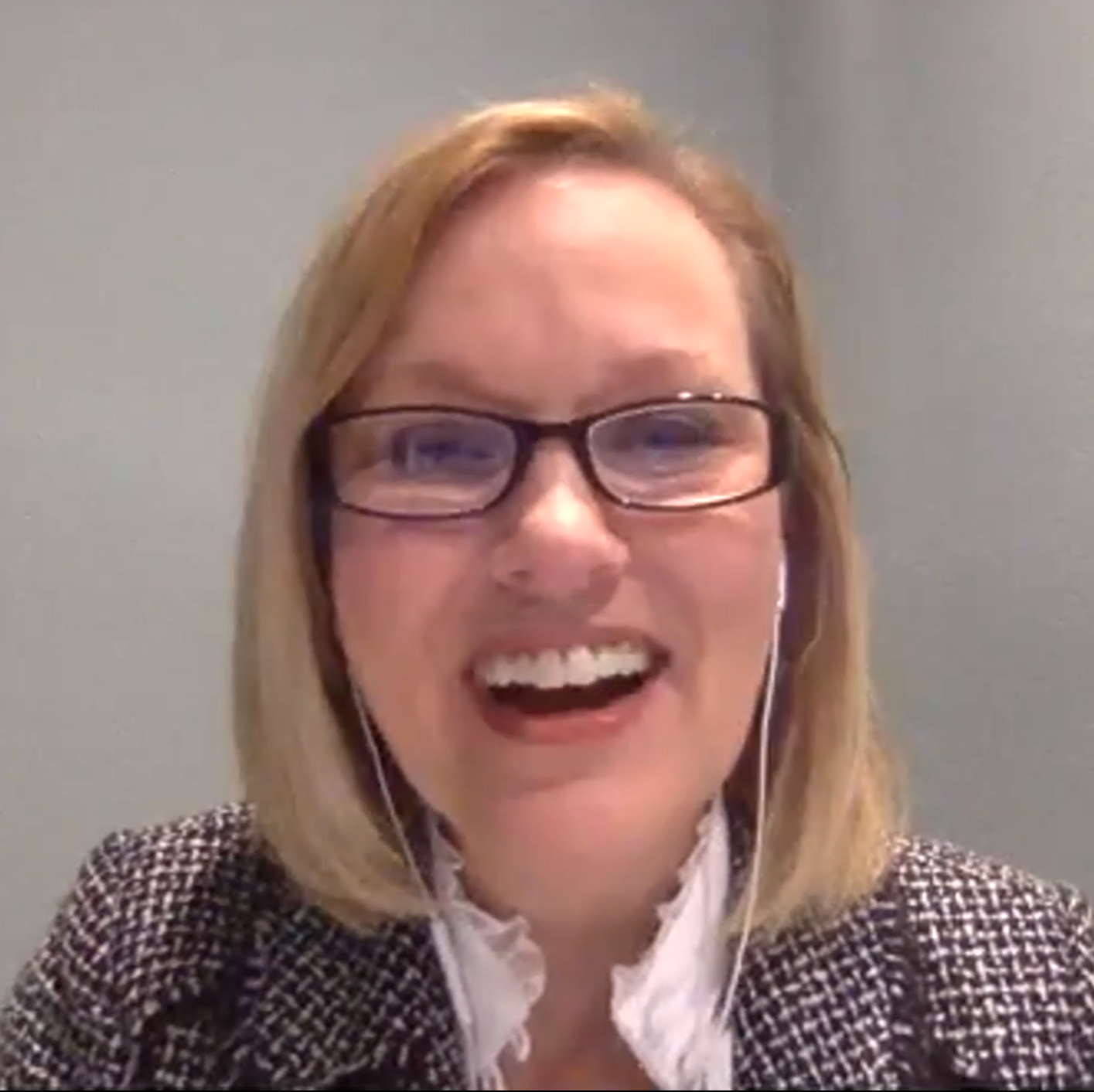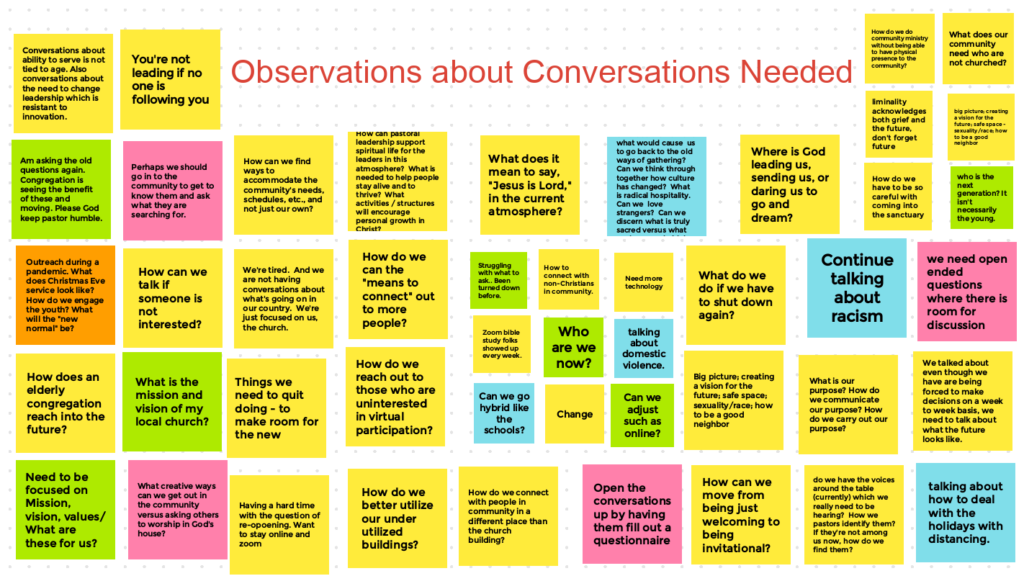
The Eastern PA Conference’s annual Faith-Sharing Seminar, Nov. 14, was presented like a well-designed, well-packed suitcase, ready for travel to unknown but potentially exciting locales. Perhaps rarely has so much knowledge-sharing insight from an acknowledged thought-leader been so neatly packed into a three-hour workshop.
And for the nearly 160 attendees who may choose to benefit from what they learned, it’s time to start unpacking and put their luggage contents to good use.

The Rev. Lisa Greenwood led the Saturday morning Zoom webinar comfortably with lecture, breakout groups, visuals, chat message responses, and creative touches like a a Mentemeter word-cloud poll (“What words define evangelism for you?”) and colorful Google Jamboards where participants posted pithy comments.
Greenwood, Vice-President for Leadership Ministries at TMF (formerly the Texas Methodist Foundation), dug deep and yet, no doubt only skimmed the surface of her knowledge about the webinar’s topic, Evangelism in a Changing Landscape. The healthy attendance likely reflected the urgency—indeed, anxiety for some—about the challenges facing mainline churches today, during the COVID-19 pandemic, and in the future. Many of those churches have been forced to move their worship and other activities online to serve congregations dislocated from their church buildings. And yet, most were already declining in their memberships and ministries before the pandemic.
Yet, Greenwood’s teaching was not about loss but about love—the “love of neighbor” that defines evangelism for her. Or more specifically, “sharing the love of God holistically,” in the words of Elaine Heath, one of several sources she quoted.
“The dominant culture once pushed people toward the church,” Greenwood said. “Now it pushes them away from the church.” She charted the “landscape shifts” from “old power models to emerging new power models,” from affiliation to individuality, from convergence to divergence, from valuing the status quo or conformity to valuing change and disruption, from long-term relationships to transient relationships, from being leader-driven to being peer-driven.
For some it may mean a shift from seeing church as a spiritual place that’s open on Sundays to seeing it as a daily spiritual journey. That may mean providing not just weekly sermons but daily meditations on messaging and social media platforms. It may mean not just a weekly Sunday school or youth group meeting, but more frequent, adventurous, outreaching and engaging discipleship gatherings. And surely, it may mean more work for already-hardworking, weary pastors and church leaders.
Navigating the ‘liminal place’
“Our world has changed, and we have an incredible opportunity to step into it,” said Greenwood, a message she offers to many leaders around the UM connection—from episcopal to congregational leaders. “That was true long before COVID happened. How can we pivot from the small changes we’ve had to make to the big changes we need to make? The more we bravely navigate those changes, the better we can love our neighbors.”
That navigation becomes most crucial in the “liminal place” where many churches find themselves, said Greenwood—a shifting place of ambiguity, disorientation, between the known and the unknown, between what is ending and what is only beginning. It is where one encounters what she describes as a cycle of disturbance, then disruption, then innovation, then coherence and finally, adoption of new norms. “We are living in a time of disruption now,” she said.
Breakout groups wrestled with challenging questions about shifts they see in their churches and communities, resistance to change, identifying what is ending, what is being disrupted and what is being born. And finally, “What conversations should we be having that we’re not having?”
Jamboard comments and chat messages indicated the struggles of many to embrace the shifts in their congregations and communities, to question the relevance of their church buildings and traditions to growing generations in an increasingly virtual, dispersed, post-modern world.

“We created a church that made sense in a convergent culture, and now that culture has shifted” said Greenwood. “And nothing indicates that we’re going back to the way things were 20 years ago, or even five years ago.” For churches adapting to online ministry, she added, “nothing is going to look the same… Online ministry is here to stay.”
6 churches to try virtual campuses
In fact, the Conference’s Connectional Ministries Office, sponsor of the seminar, is working with the Congregational Development Team to help six pilot churches explore creating virtual church campuses that can operate almost totally online—meaning much more than just online worship.
“This change is good news; we don’t want to go back,” Greenwood insisted. “We’ve been reaching less of the population every year; we want to reach more people with the love of God. So this is a hopeful time of creativity and innovation and possibility. And we know that God does God’s best work out of chaos and in the wilderness.”
Quoting Susan Beamont, author of the popular book How To Lead When You Don’t Know Where You’re Going, she spoke of this “liminal season” as having “one foot rooted in a thing that is not yet ended and the other planted in a thing that’s not yet begun.”
“Our call is not to eliminate ambiguity and chaos but to embrace the emergence of the new thing—new behavior patterns and new organizing structures that arise.
“We want the church to be its strongest witness,” said Greenwood. “The world needs love and grace and mercy and justice and hope and joy. And the church stands tall to offer God’s love to a hurting world, but not if we stay stuck and close ourselves off from the new thing God is doing in us.”
To watch or hear a recording of the 2020 Faith-Sharing Seminar with the Rev. Lisa Greenwood, and to receive the Jamboard comments, contact NEWSpirit Communications at communications@epaumc.org or the Conference’s Connectional Ministries Office at dtaylor-storm@epaumc.org.
Also, Lisa Greenwood shares a link to her monograph The Mixed Ecology and a helpful list of recommended books:
- How to Lead When You Don’t Know Where You’re Going: Leading in a Liminal Season, by Susan Beaumont
- Quietly Courageous: Leading the Church in a Changing World, Gil Rendle
- Failure of Nerve: Leadership in the Age of Quick Fix, by Edwin Friedman
- Canoeing the Mountains: Christian Leadership in Uncharted Territory, by Tod Bolsinger (and his new one, Tempered Resilience: How Leaders are Formed in the Crucible of Change)
- White Fragility: Why It’s So Hard to Talk to White People about Racism, by Robin DiAngelo
- Congregational Leadership in Anxious Times: Being Calm and Courageous No Matter What, by Peter Steinke (Also Uproar: Calm Leadership in Anxious Times)
- Social Media to Social Ministry: A Guide to Digital Discipleship, by Nona Jones
